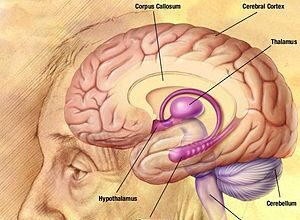As a physician, some of my biggest disappointments have been with colleagues who could not visualize the benefit of going beyond the usual prescription medications or surgery as the only methods of treating a patient. Even after describing my successes, not only with my patients but with my own wellbeing, my colleagues’ skepticism continued. This skepticism is founded in a reality that lacks a circular medical education background. What I mean by this is that, as you treat patients, they should be thought of as being centered in the middle of a circle. The physician is only one of many lines of input to a patient’s care. Linear thinking blocks the practitioner from the full view of the patient since he or she can have many caregivers. Most medical schools, at this point in time, have at least one course in CAM (Complementary and Alternative Medicine), but it is too little and too late in the education process. The ability to appreciate and then integrate complementary care is not well developed in the educational process. Let’s define this process and look at why modern medicine does not have the patient-centered in the circle. Complementary medicines are supplements that are used with modern medicine to add to the treatment plan and hopefully improve the quality of life. Over 40% of Americans use some form of complementary medicines. Alternative medicines are used instead of the plan proposed by modern medicine. In most cases, using a complementary plus modern medicine approach reaches the goal of a quality life with the safest and most complete input. Complementary medicines range from whole medical systems to mind-body techniques, to manipulation and energy drugs. There is a significant amount of lip service by the AMA (American Medical Association) and mainstream medicine in support of complementary practices. This does not translate into any particular plan to educate and integrate these into mainstream medicine, which speaks to the lack of respect mainstream medicine has for what complementary medicine has to offer. With this in mind, there is a distrust physician have for complementary practitioners, which is not unfounded. Many complementary practitioners are not well educated and prey on the weakened state of many patients. The weakness here has to do with the practitioners since many complementary methods are based on solid foundations for patient care and have merit to be part of a care plan. In light of this, mainstream medicine should provide assistance in establishing referral patterns to reputable complementary caregivers. Why can’t physicians incorporate complementary techniques into their own mainstream practice? There are several reasons why this is not as simple as it might seem. The first is that physicians are thought of as experts in medicine, but are not usually experts in complementary medicines or techniques. This leaves them vulnerable and lacking the confidence to incorporate CAM into their treatments. Secondly, they usually have not developed referral patterns to reputable complementary providers that would set up a trusting relationship. Thirdly, many complementary practices are not covered by insurance or the reimbursement is very low. Lastly, the safety of complementary medicines is not monitored in the same fashion as prescription medications, leaving questions of drug interactions and negative physiological side effects unanswered. Research could be done to clarify this, but funding is scarce, due to small financial gains. As modern medicine continues its linear thinking and is slow to put the patient in the middle of the circle, the patient will need to insist that this is the case. This is not as difficult as it may seem. Two things need to occur for this to be true: questions need to be asked, and all providers need the appropriate level of communication. All practitioners providing care for a patient should be aware of each other. The basic plan of each provider should also be clear. Proposed treatments should be easily explained to the patient, and if not already discussed, the side effects should be defined. If the patient is doing some of his or her own management with complementary medicines, the primary practitioner needs to be fully aware. This approach may not be considered optimal by some practitioners, but they need to be in the loop for optimal management. Too negative of a response about a patient’s use of complementary supplements by a practitioner may cause the patient to cease discussion of their additional complementary practices. Patient taking charge of their care is a natural development of our current healthcare system. Modern medicine has limited itself by not incorporating many of the available ways to improve the quality of life and should welcome the patient taking more of an active management role. New graduates of the modern medical school and their extenders should be comfortable discussing the many options that patients have to improve the quality of life. No one physician can be all knowing about all options. Incorporating complementary providers into their referral base needs to be a routine. The patient-centered in the middle of the circle should also be routine. Input into living life to the fullest needs to be wide and varied. Modern medicine practitioners can lead the way from sickness to wellness by expanding their role and accepting what is now the patient in the center of the circle model.








